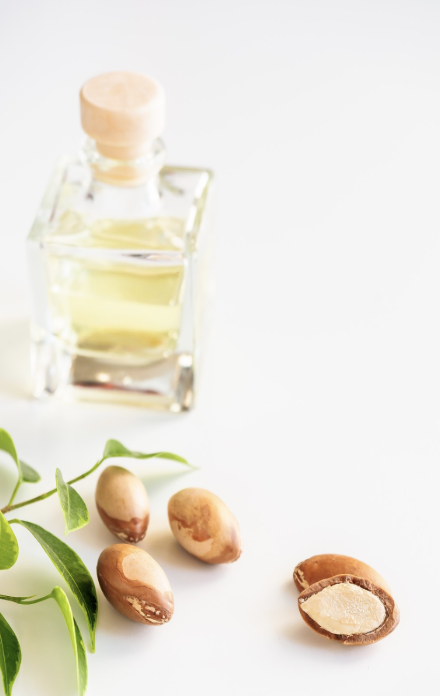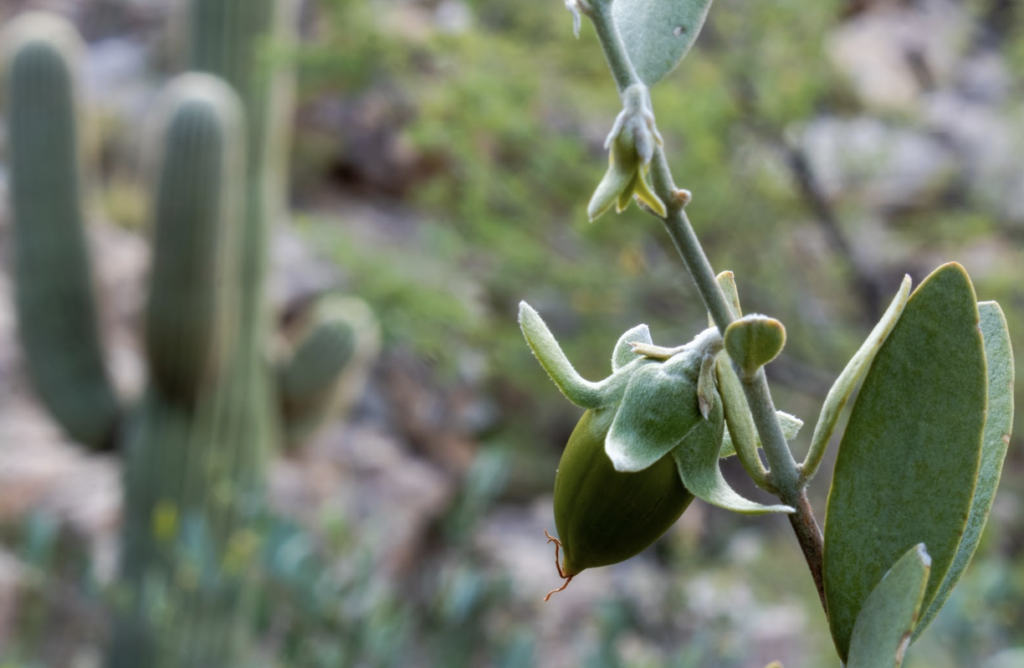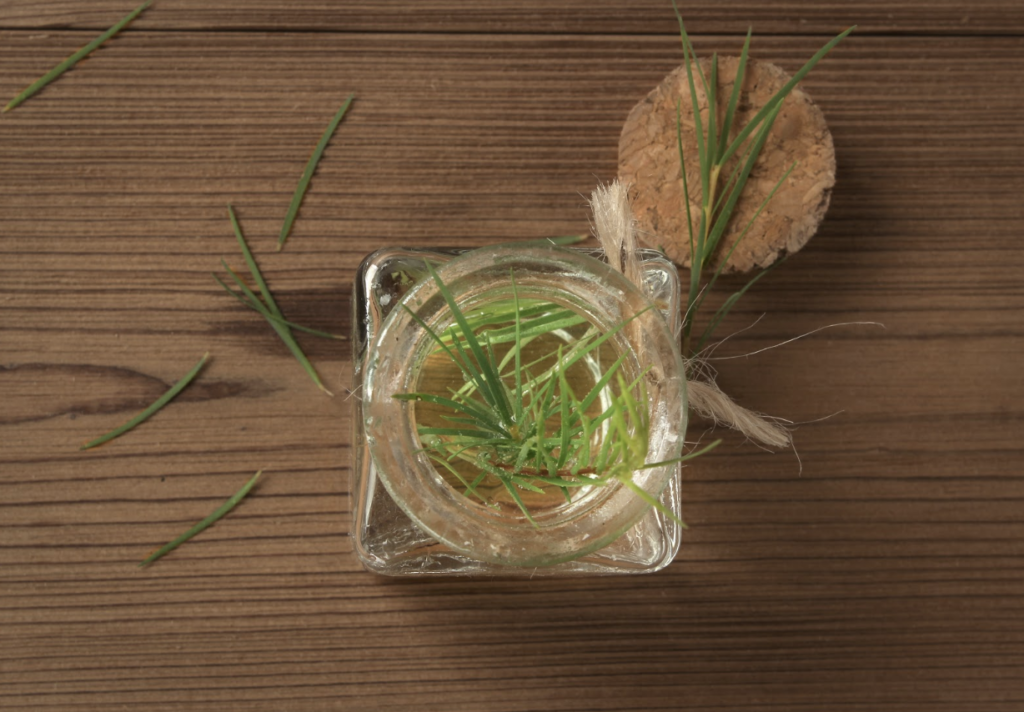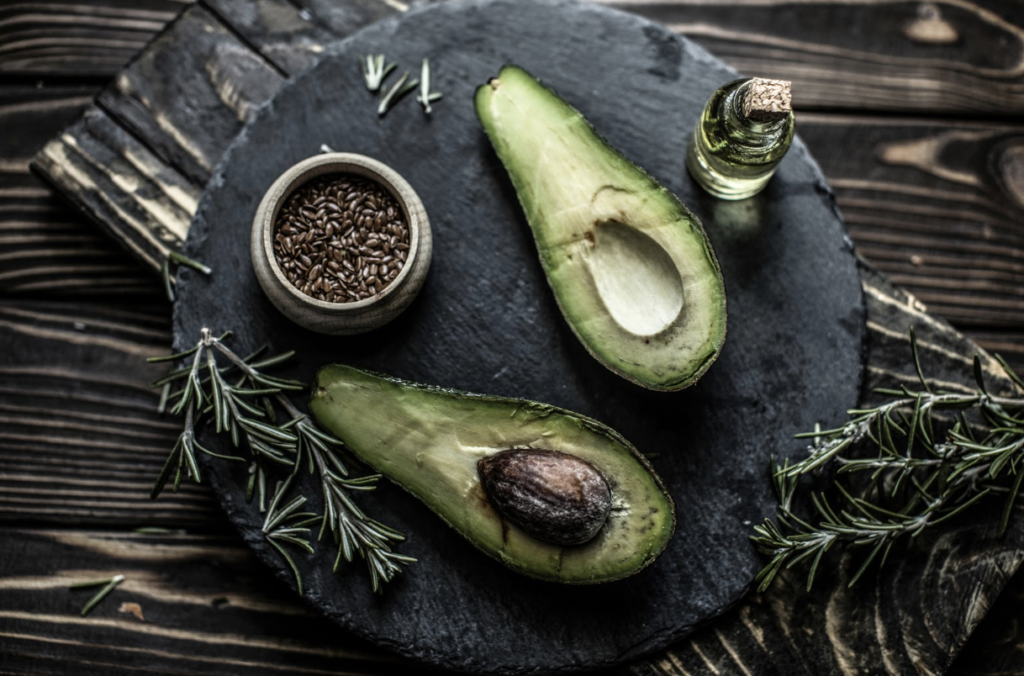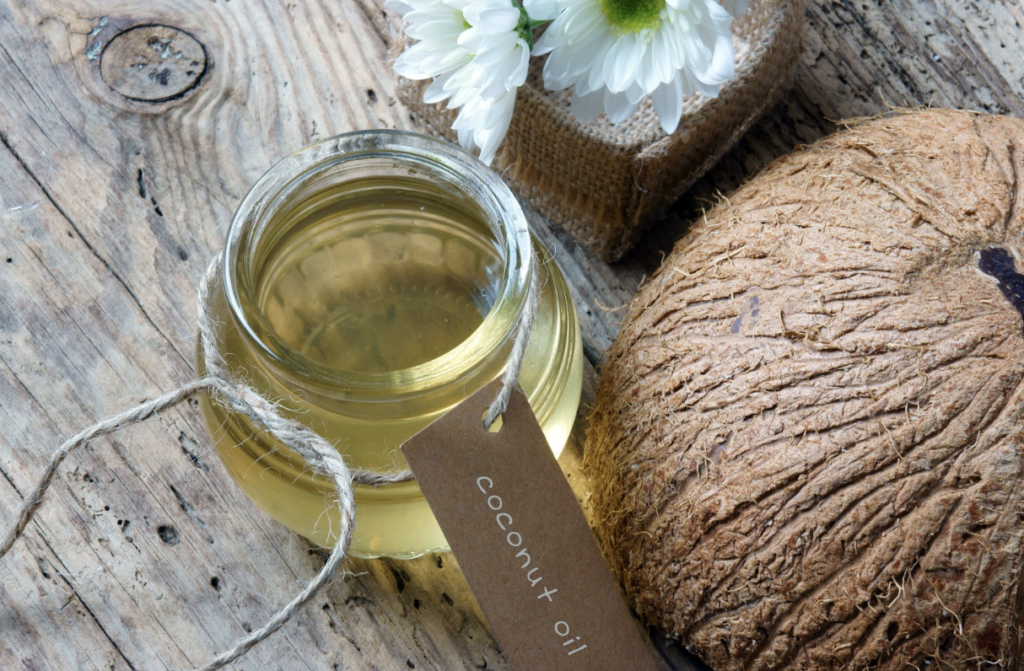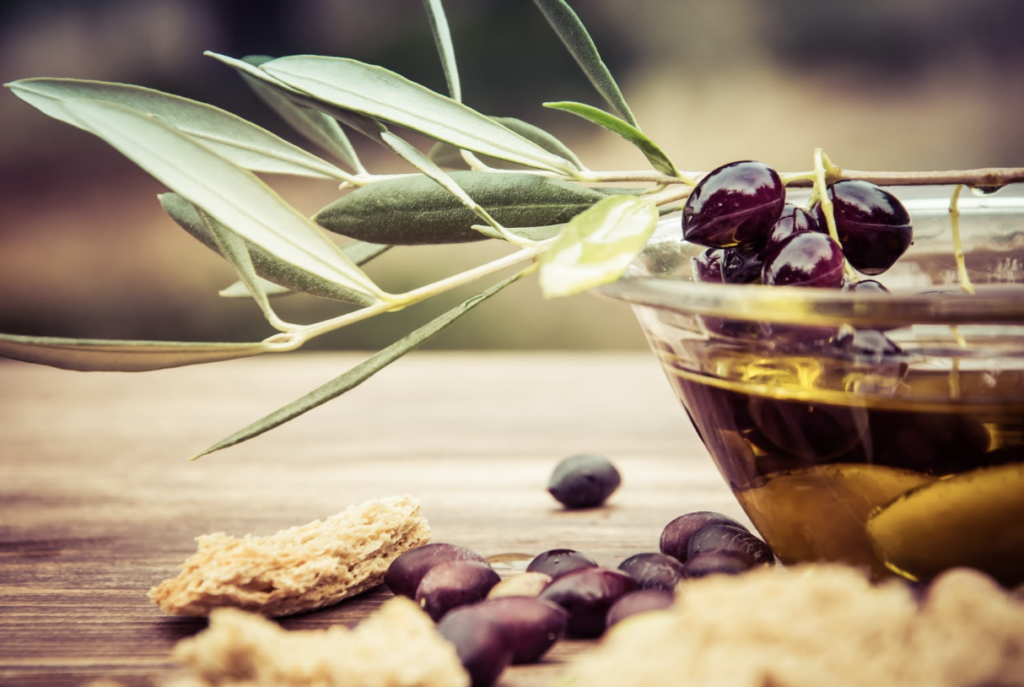When it comes to skincare, essential oils and natural oils have several benefits from hydrating to anti-inflammatory properties. But what are the best oils to use on your skin?
Facial oils are full of essential vitamins and fatty acids that help to moisturize, brighten, and repair acne prone skin. Learn about the best natural oils for your sensitive skin, choose which ones are best for you, and finally, practice some DIY self care.
1. Rosehip Oil
Rosehip oil, or rosehip seed oil, is derived from the rosa canina climbing shrub. Rosehip oil is pressed from the fruit and seeds of this rose plant.
Its anti-inflammatory properties can help to reduce redness from acne and other skin conditions. The vitamin C in rosehip may also brighten skin by reducing dullness and decreasing hyperpigmentation. Antioxidants in rosehip might help to reduce production of free radicals, which are caused by sun damage.
Fatty acids in rosehip oil help to hydrate dry and itchy skin. One study using rosehip powder suggests that rosehip has anti-aging and moisturizing properties.
According to a 2015 study, rosehip oil may help fade dark spots and scars on skin. The study showed improvement in texture and appearance of scars and blemishes after the oil was applied.
Application: Though many rosehip oil products can be applied directly to the skin, it’s always a good idea to spot test it on your forearm first to avoid irritation. Rosehip oil can either be used on its own or with a carrier oil or moisturizer.
2. Argan Oil
Argan oil is a moisturizing oil extracted from the nuts of the Moroccan argan tree. This golden yellow oil is thin, light, and non-greasy, packed full of fatty acids that offer essential nutrients. These may be able to:
- Reduce redness and stretch marks
- Repair skin
- Rebalance sebum production to prevent acne breakouts
Vitamin E in argan oil serves as an antioxidant, which can reduce the damaging effects on skin. Argan oil can also be used to treat inflammatory skin conditions such as eczema, psoriasis, or acne, though more evidence is needed to solidify dosage and efficacy.
Application: Argan oil can be used on most skin types, from dry to oily, and applied directly to the skin as a face oil or used in a moisturizer. Individuals with nut allergies may experience minor side effects such as rashes or acne, so it’s advisable to try a drop of argan oil on a visible patch of skin to watch for reaction.
3. Jojoba Oil
Jojoba oil is a liquid plant wax that comes from the jojoba plant, which is a shrub native to the southwestern United States. Jojoba oil contains several dermatologist approved ingredients such as vitamin E, zinc, and essential fatty acids.
Not only can Jojoba oil moisturize skin and prevent irritation, it may promote wound healing, as it speeds up the process. In addition, it can help to soothe skin conditions such as eczema, psoriasis, and sunburns with its anti-inflammatory and healing properties on skin cells.
Jojoba can possibly act as an astringent to reduce the appearance of fine lines, wrinkles, and scars.
Application: Jojoba is one of the best face oils and is great in a variety of skin care products. Because jojoba is typically hypoallergenic and does not need to be diluted, it can be applied directly to the skin after a patch test. It can also be used as a lip balm for dry lips or a mask for acne and applied directly to the face.
4. Tea Tree Oil
Tea tree oil has several everyday purposes, and can be used for nail, hair, and skin health. This particular oil is derived from Melaleuca alternifolia leaves, a small Australian tree.
Tea tree serves as an antimicrobial, killing bacteria, viruses, and fungi. Several studies have shown that tea tree oil reduces acne and inflammation, which is why it’s effective to reduce itching and irritation and soothe dry skin. One study shows its preferred efficacy in comparison to zinc oxide and other creams in treating eczema.
Tea tree oil may be able to treat oily and itchy skin as well. It’s an anti-inflammatory, which helps to soothe inflamed and swollen skin. Acne can be treated with this oil as it calms redness and swelling and prevents further breakouts.
Notice a lot of bumps and bruises from an active lifestyle? Tea tree oil can also be used as an antiseptic for minor cuts and scrapes and boost wound healing.
Application: When applying tea tree oil to the skin, it is important to dilute the oil with a carrier oil. The oil is safe overall, but allergic reactions may occur in some people. To use tea tree as a skin toner, try putting 3 drops of tea tree oil into 2 ounces of witch hazel. I recommend face washes, moisturizers and spot treatments containing tea tree oil.
5. Avocado Oil
Have you ever thought about introducing avocado into your skincare routine? The thick and oily substance is able to penetrate deep layers of the skin. Omega fatty acids and vitamin E in avocado oil moisturize and nourish skin while reducing inflammation.
When applied, avocado oil is able to reduce redness and inflammation associated with acne. The oil may also help wounds heal faster, promoting collagen synthesis and creating new tissue. This oil can also treat sunburned skin, reduce signs of aging, and improve nail and scalp health.
Application: More than likely, you can safely massage avocado oil into the skin or use it as a face mask. Avocado oil can be highly concentrated and may cause skin reactions, so do a patch test first.
6. Coconut Oil
This is a controversial oil for use on the skin. Coconut oil is made through extraction of oil from raw coconuts, has many health benefits, and is often used in cooking. Many people apply it to hair and skin as well.
The anti-inflammatory properties of coconut oil could potentially address inflammatory skin disorders such as psoriasis, contact dermatitis, and eczema. It also acts as an excellent moisturizer, locking in moisture, keeping the skin hydrated, and reducing dryness.
However, in my practice I have seen people with oily and sensitive skin react poorly to coconut oil, causing skin irritations and even breakouts. I do not recommend leaving this oil on your skin for prolonged periods of time.
Application: Organic, unrefined, and cold-pressed coconut oil is best. Use it as a makeup remover, mask, or sugar scrub that is washed off. Those with oily skin may want to avoid coconut oil or use it sparingly, as it may clog pores and lead to blackheads.
7. Extra Virgin Olive Oil
One final oil that may promote healthy skin is extra virgin olive oil (EVOO). It’s packed with antioxidants, meaning that it has the potential to reduce free radicals that may contribute to cancer.
Extra virgin olive oil is full of fat-soluble vitamins like vitamins A, D, E, and K that nourish the skin. EVOO is also commonly used as a moisturizer to soften skin and hair. It’s an ingredient found in many personal care products, such as soaps and body wash.
But you should never use regular olive oil for skin care, due to its high acidity. You should only use extra virgin olive oil that has been cold-pressed and unrefined.
Application: EVOO may be used as a face mask or makeup remover. It’s a heavier oil that is not easily absorbed. Because it’s heavy, wipe or blot off any excess oil to prevent a greasy feeling or clogged pores. Research reports that olive oil used for some skin types, such as dry skin in adults and infants, is not encouraged and may cause damage and redness to the skin.
In Summary
- Rosehip oil is full of antioxidants and vitamins that brighten skin and present anti-aging properties.
- Argan oil’s fatty acids and vitamin E help to reduce redness and maintain healthy tissues.
- Jojoba oil is known for treating various skin conditions, as well as promoting wound healing.
- Tea tree oil is beneficial to the skin because of its antimicrobial and antifungal properties. It may reduce acne and inflammation, possibly treating skin diseases such as eczema.
- Avocado oil penetrates the skin deeply, moisturizing and treating inflamed skin. It should be tested on your particular skin first.
- Extra virgin olive oil and coconut oil — they’re not just for the kitchen anymore! These oils can moisturize, but those with oily skin should use sparingly as these oils have been known to clog pores.
Sources
- Lin, T. K., Zhong, L., & Santiago, J. (2017). Anti-inflammatory and skin barrier repair effects of topical application of some plant oils. International journal of molecular sciences, 19(1), 70. Full Text: https://www.ncbi.nlm.nih.gov/pmc/articles/PMC5796020/
- Phetcharat, L., Wongsuphasawat, K., & Winther, K. (2015). The effectiveness of a standardized rose hip powder, containing seeds and shells of Rosa canina, on cell longevity, skin wrinkles, moisture, and elasticity. Clinical interventions in aging, 10, 1849. Full Text: https://www.ncbi.nlm.nih.gov/pmc/articles/PMC4655903/
- Valerón-Almazán, P., Gómez-Duaso, A. J., Santana-Molina, N., García-Bello, M. A., & Carretero, G. (2015). Evolution of Post-Surgical Scars Treated with Pure Rosehip Seed Oil. Journal of Cosmetics, Dermatological Sciences and Applications, 5(02), 161. Full Text: https://pdfs.semanticscholar.org/8438/184f12f65fd18dbb32d24644413707078657.pdf
- Charrouf, Z., & Guillaume, D. (2008). Argan oil: Occurrence, composition and impact on human health. European Journal of Lipid Science and Technology, 110(7), 632-636. Full text: https://onlinelibrary.wiley.com/doi/pdf/10.1002/ejlt.200700220
- Bogdan, C., Moldovan, M. L., Man, I. M., & Crișan, M. (2016). Preliminary study on the development of an antistretch marks water-in-oil cream: ultrasound assessment, texture analysis, and sensory analysis. Clinical, cosmetic and investigational dermatology, 9, 249. Full Text: https://www.ncbi.nlm.nih.gov/pmc/articles/PMC5019162/
- Dobrev, H. (2007). Clinical and instrumental study of the efficacy of a new sebum control cream. Journal of cosmetic dermatology, 6(2), 113-118. Abstract: https://www.ncbi.nlm.nih.gov/pubmed/17524128
- López, L. C., Cabrera-Vique, C., Venegas, C., García-Corzo, L., Luna-Sánchez, M., Acuña-Castroviejo, D., & Escames, G. (2013). Argan oil-contained antioxidants for human mitochondria. Natural product communications, 8(1), 1934578X1300800111. Abstract: https://www.ncbi.nlm.nih.gov/pubmed/23472457
- Ranzato, E., Martinotti, S., & Burlando, B. (2011). Wound healing properties of jojoba liquid wax: an in vitro study. Journal of ethnopharmacology, 134(2), 443-449. Abstract: https://www.ncbi.nlm.nih.gov/pubmed/21211559
- Meier, L., Stange, R., Michalsen, A., & Uehleke, B. (2012). Clay jojoba oil facial mask for lesioned skin and mild acne–results of a prospective, observational pilot study. Complementary Medicine Research, 19(2), 75-79. Abstract: https://www.karger.com/Article/Abstract/338076
- Carson, C. F., Hammer, K. A., & Riley, T. V. (2006). Melaleuca alternifolia (tea tree) oil: a review of antimicrobial and other medicinal properties. Clinical microbiology reviews, 19(1), 50-62. Abstract: https://www.ncbi.nlm.nih.gov/pubmed/16418522
- Sinha, P., Srivastava, S., Mishra, N., & Yadav, N. P. (2014). New perspectives on antiacne plant drugs: contribution to modern therapeutics. BioMed research international, 2014.Full Text: https://www.ncbi.nlm.nih.gov/pmc/articles/PMC4132408/
- Wallengren, J. (2011). Tea tree oil attenuates experimental contact dermatitis. Archives of dermatological research, 303(5), 333-338. Abstract: https://www.ncbi.nlm.nih.gov/pubmed/20865268
- Carson, C. F., Hammer, K. A., & Riley, T. V. (2006). Melaleuca alternifolia (tea tree) oil: a review of antimicrobial and other medicinal properties. Clinical microbiology reviews, 19(1), 50-62. Full Text: https://www.ncbi.nlm.nih.gov/pmc/articles/PMC1360273/
- Rosenblat, G., Meretski, S., Segal, J., Tarshis, M., Schroeder, A., Zanin-Zhorov, A., … & Hochberg, M. (2011). Polyhydroxylated fatty alcohols derived from avocado suppress inflammatory response and provide non-sunscreen protection against UV-induced damage in skin cells. Archives of dermatological research, 303(4), 239-246. Abstract: https://www.ncbi.nlm.nih.gov/pubmed/20978772
- De Oliveira, A. P., Franco, E. D. S., Rodrigues Barreto, R., Cordeiro, D. P., de Melo, R. G., de Aquino, C. M. F., … & Maia, M. B. D. S. (2013). Effect of semisolid formulation of persea Americana mill (avocado) oil on wound healing in rats. Evidence-Based Complementary and Alternative Medicine, 2013. Full Text: https://www.ncbi.nlm.nih.gov/pmc/articles/PMC3614059/
- Evangelista, M. T. P., Abad‐Casintahan, F., & Lopez‐Villafuerte, L. (2014). The effect of topical virgin coconut oil on SCORAD index, transepidermal water loss, and skin capacitance in mild to moderate pediatric atopic dermatitis: a randomized, double‐blind, clinical trial. International journal of dermatology, 53(1), 100-108. Abstract: https://www.ncbi.nlm.nih.gov/pubmed/24320105
- Agero, A. L., & Verallo-Rowell, V. M. (2004). A randomized double-blind controlled trial comparing extra virgin coconut oil with mineral oil as a moisturizer for mild to moderate xerosis. Dermatitis, 15(3), 109-116. Abstract: https://www.ncbi.nlm.nih.gov/pubmed/15724344
- Vissers, M. N., Zock, P. L., & Katan, M. B. (2004). Bioavailability and antioxidant effects of olive oil phenols in humans: a review. European journal of clinical nutrition, 58(6), 955. Abstract: https://www.ncbi.nlm.nih.gov/pubmed/15164117
- Danby, S. G., AlEnezi, T., Sultan, A., Lavender, T., Chittock, J., Brown, K., & Cork, M. J. (2013). Effect of olive and sunflower seed oil on the adult skin barrier: implications for neonatal skin care. Pediatric dermatology, 30(1), 42-50. Abstract: https://www.ncbi.nlm.nih.gov/pubmed/22995032


